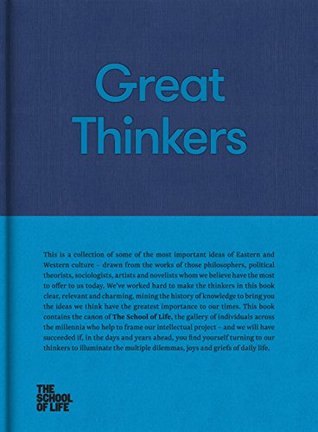More on this book
Community
Kindle Notes & Highlights
Read between
July 15 - July 16, 2017
dependence on others
testing the limits of authority.
potty-training is the prime time for navigating the conflict between our own pleasure-seeking and the demands of our parents.
Mum and dad both give us love, but they mix it in with various kinds of troubling behaviour. Yet because we love them and depend on them, we remain loyal to them and also to their destructive patterns.
Civilisation and its Discontents (1930), Freud wrote that a degree of repression and psychological dysfunction is simply the cost of living in a society. Society insists on regulating sex, imposes the incest taboo, requires us to put off our immediate desires, demands that we follow authority and makes money available only through work. A non-repressive civilisation is a contradiction.
we instinctively try to protect our ‘ego’ (our acceptable picture of who we are) with a variety of defences.
the difficulty of the young infant’s situation
Remember that your child is very vulnerable
2. Let a child be angry
Winnicott interpreted violent feelings against parents as a natural aspect of the maturational process: ‘For a child to be brought up so that he can discover the deepest part of his nature, someone has to be defied, and even at times hated … without there being a danger of a complete break in the relationship.’
3. Make sure your child isn’t too compliant
The point of the early years was to be able to express freely a lot of ‘bad’ feelings without consequences, and without fear of retribution.
This would lead, in Winnicott’s formulation, to the emergence of a ‘False Self’ – a persona that would be outwardly compliant, outwardly good, but was suppressing its vital instincts; who was not able to properly balance up its social with its destructive sides and that couldn’t be capable of real generosity or love, because it hadn’t been allowed fully to explore selfishness and hate.
4. Let your child be
We often imagine love to be about a magical intuitive ‘connection’ with someone. But, in Winnicott’s writings, we get a different picture. It’s about a surrender of the ego, a putting aside of one’s own needs and assumptions, for the sake of close, attentive listening to another, whose mystery one respects, along with a commitment not to get offended, not to retaliate, when something ‘bad’ emerges, as it often does when one is close to someone, child or adult.
partner’s apparent coldness and indifference is not caused by their loathing of us, but by the fact that a long time ago they were too badly hurt by intimacy. They are protecting themselves out of fear.
Children don’t suffer from habit, which is why they get excited by some very key but simple things like puddles, jumping on the bed, sand and fresh bread. But we adults get ineluctably spoilt; which is why we seek ever more powerful stimulants (like fame and love). The trick – in Proust’s eyes – is to recover the powers of appreciation of a child in adulthood, to strip the veil of habit and therefore to start to look upon daily life with a new and more grateful sensitivity. This for Proust is what one group in the population does all the time: artists.
That’s why artists are so important. Their works are like long Proustian moments. They remind us that life truly is beautiful, fascinating and complex, and thereby they dispel our boredom and ingratitude. Proust’s philosophy of art is delivered in a book


